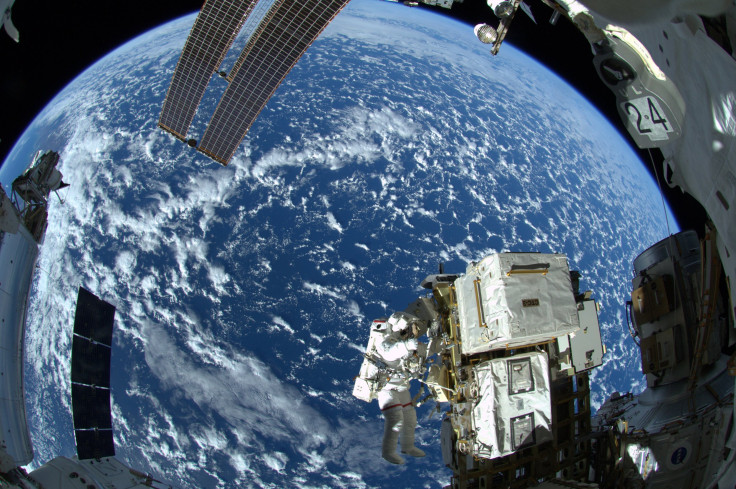Russia 'Considering' Constructing Rival To International Space Station With Recession Looming

There soon could be more than one massive space station floating above Earth’s atmosphere if Russia follows through on a plan to construct a rival to the International Space Station. “I confirm we are considering such an option,” Oleg Ostapenko, head of the Russian space agency Roscosmos, told news agency RIA Novotsi, as quoted by Reuters. “This is a possible direction of development.”
NASA expects the $100 billion ISS, which is maintained and shared by 15 countries, to remain in service until at least 2024. Yet rumors have circulated in the Russian media for months that the Kremlin, which is engaged in prolonged, intense hostility with the West over Ukraine and other issues, hopes to build its own space station. With the oil-dependent country facing a currency crisis and expected to enter recession in 2015, however, experts wonder where the funding would come from.
“How can they suddenly plan a new space station? It’s impossible,” Russian space industry analyst Pavel Luzin told the English-language Moscow Times.
Officials have maintained that Russia will honor its commitment with the ISS, a partnership that lasts until 2020. Also, in September Deputy Prime Minister Dmitry Rogozin, head of the space industry, said the federal space budget for the years 2016 to 2025 will dedicate 321 billion rubles ($6.8 billion) to continuing development on the ISS.
Experts have suggested that the contradiction only highlights the current conflict within the Kremlin. President Vladimir Putin’s popularity has hovered around 80 percent, in part because of a Russian national image that’s become more assertive even as the value of the ruble falls.
“The best thing for the economy – short of an oil price which the Kremlin has no influence over – would be to negotiate a settlement with Ukraine and climb down the escalation,” foreign policy expect and Russian commentator Ian Bremmer told Business Insider. “But that flies against what’s actually sustained Putin’s popularity … and the primary driver of his entire strategy for the past year.”
© Copyright IBTimes 2024. All rights reserved.











